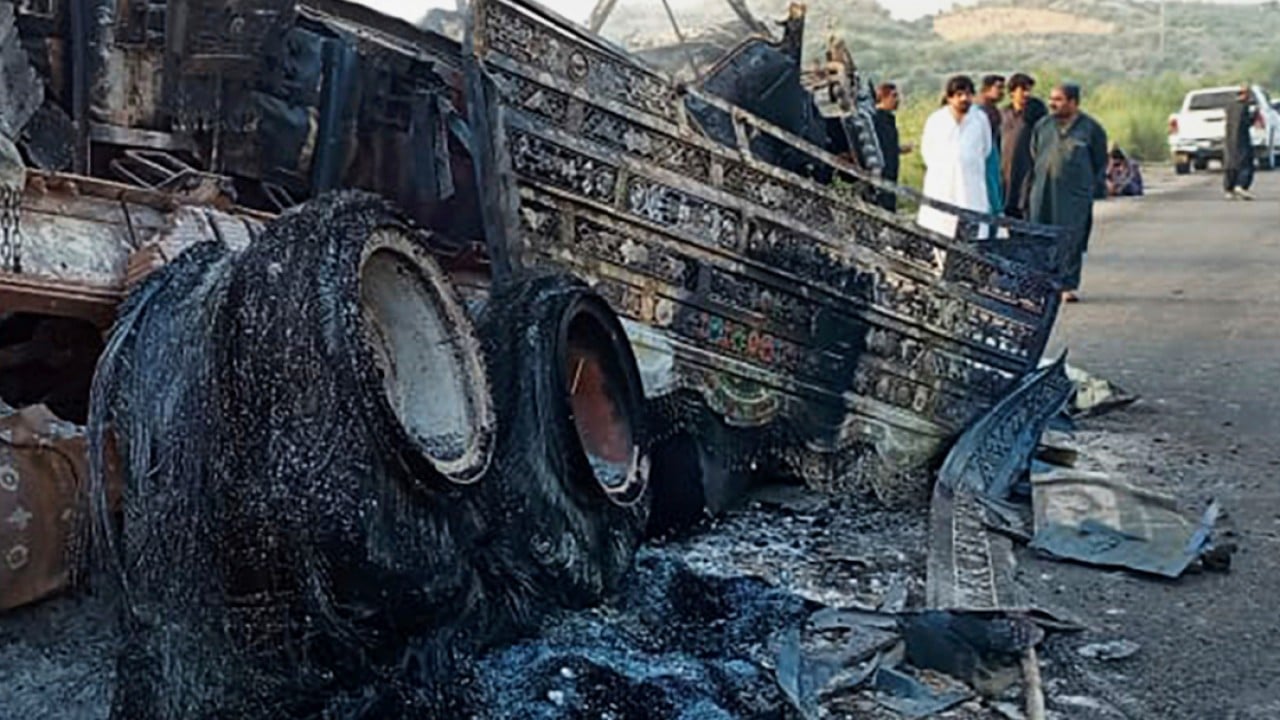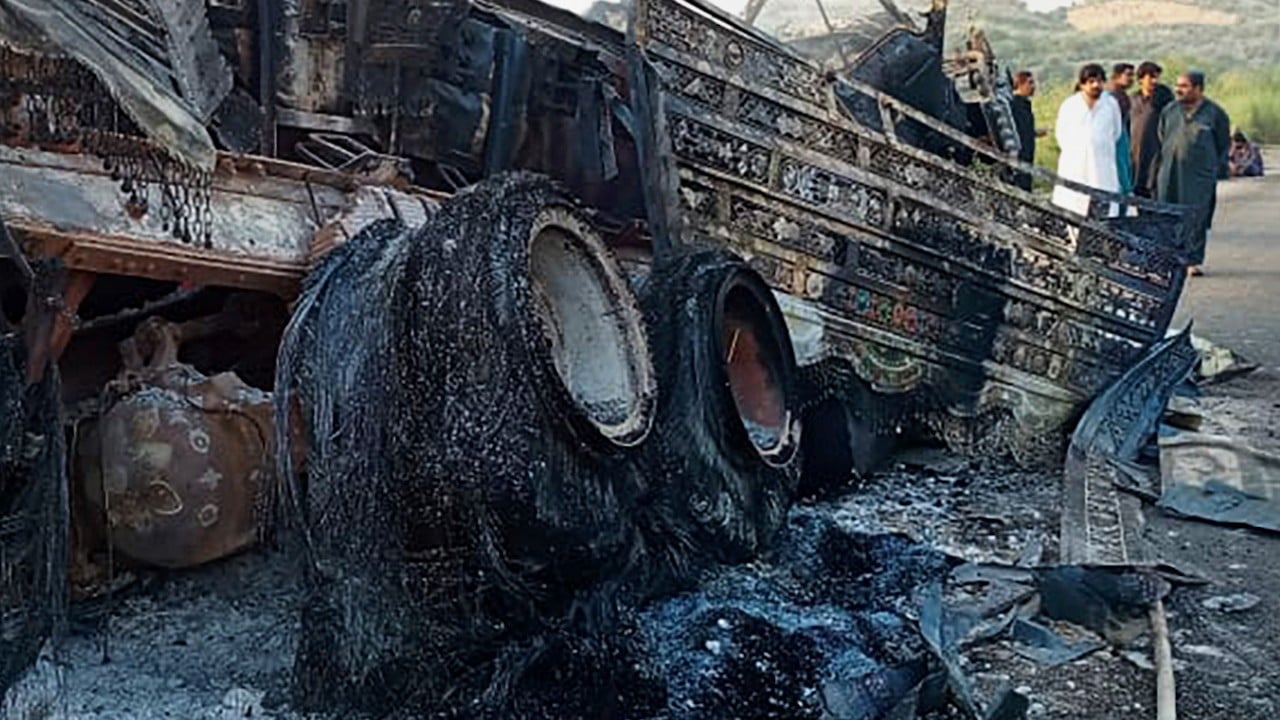Pakistani Prime Minister Shehbaz Sharif has vowed to stamp out terrorism in western Balochistan province following a deadly campaign of rebel attacks that he said was aimed at sabotaging Belt and Road Initiative projects there.
The insurgents’ “nefarious and impure goals are to stop the journey of progress” in Pakistan, Sharif said at a cabinet meeting in Islamabad on Tuesday.
By staging the provincewide attacks, the terrorists wanted to “drive a wedge” between close allies Pakistan and China, he added.
At least 50 civilians and security personnel were killed in about a dozen insurgent attacks in ethnic Baloch majority areas of the province over the weekend. The attacks were timed to coincide with the 17th anniversary of the 2006 assassination of the province’s former chief minister Nawab Akbar Bugti by the army after he rebelled against military dictator Pervez Musharraf.
During the attacks, rebels cut off vast, rugged and thinly populated Balochistan – home to the Chinese-operated Arabian Sea port of Gwadar – from the rest of the country by blockading major highways and blowing up railway bridges.
Paramilitary forces’ bases were assaulted by suicide squads while several posts and police stations were overrun.

In an incident that horrified Pakistanis and others, the rebels executed 23 bus passengers after identifying them as residents of the populous, politically dominant province of Punjab.
No Chinese projects or personnel were targeted during the weekend campaign.
Nonetheless, Sharif saw the wave of attacks in Balochistan as an attempt to scare off investors from the strategically located mineral-rich province, particularly Beijing.
Balochistan is the southernmost node in the envisioned US$65 billion China–Pakistan Economic Corridor project, which was launched in 2016 with the core aim of connecting Xinjiang overland to the western Indian Ocean via Gwadar port.
Following several lethal attacks in recent years against Chinese nationals working in Pakistan by Baloch and Taliban insurgents, most recently in April, Beijing has repeatedly stressed that its future investments in the country depend on Islamabad’s ability to provide a safe and politically stable business environment.
The multipronged attacks in Balochistan coincided with the visit to Islamabad of General Li Qiaoling, commander of the People’s Liberation Army’s ground forces, for talks on enhancing defence cooperation and the regional security situation.
Statements issued by Islamabad after Li’s meetings with Sharif and other top Pakistani officials on Monday made no specific mention of the terrorist attacks in Balochistan.
Reacting to the carnage, foreign ministry spokesman Lin Jian said China was “ready to further strengthen counterterrorism security cooperation with the Pakistani side in order to jointly maintain regional peace and security”.
Addressing his cabinet, Sharif rejected calls from some influential sections of the Pakistani media to prioritise finding a political solution to the insurgency in Balochistan.
In an editorial published on Tuesday, Pakistan’s top English newspaper Dawn said that while “kinetic action” against Baloch rebels was necessary, “the civil and security leadership must look deeper” at the human rights violations, poor socioeconomic conditions and the denial of political rights that have “intensified the tension between the Baloch and the state”.
“These factors provide a fertile recruiting ground for terrorist groups on the lookout for angry, frustrated elements to join their ranks,” Dawn said.
However, the Pakistani prime minister said “neither talks can be held nor any soft approach can be employed” with rebels unless they surrendered and accepted the country’s federal constitution.
“Terrorists have no place. No matter what happens, they will be completely eradicated from this country,” said Sharif, who promised to divert budgetary funding if necessary to finance ramped-up security operations against Baloch and Taliban insurgents.

Security analyst Abdul Basit described the “near-simultaneous, multiple coordinated attacks” carried out by the Baloch rebels as a “bid to generate an impression of a slipping state writ” through the improved capabilities of insurgents to occupy areas and highways in Balochistan for extended periods.
“In-depth strategic planning went into these attacks, matched by operational capabilities on the battle and media fronts, catching the state off guard,” Basit said.
The insurgents’ ability to infiltrate security camps and posts was “alarming and requires a complete overhaul of existing security measures”, he added.
Pakistani Interior Minister Mohsin Naqvi on Monday said Baloch rebels and their sympathisers would from now on be considered solely as terrorists instead of discontented citizens.
However, Basit pointed out that such “bravado” backfired in 2006, when then-president Musharraf ordered the killing of Bugti, sparking the 18-year-long insurgency.
“It’ll boomerang in 2024 as well,” said Basit, a senior associate fellow of the International Centre for Political Violence and Terrorism at S. Rajaratnam School of International Studies in Singapore.
In the 18 years since Bugti’s killing, the situation in Balochistan had gone “from bad to worse”, said Basit, who described the insurgency there as “a political problem which has no security solution”.



